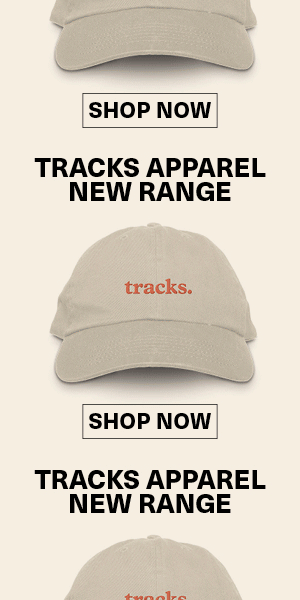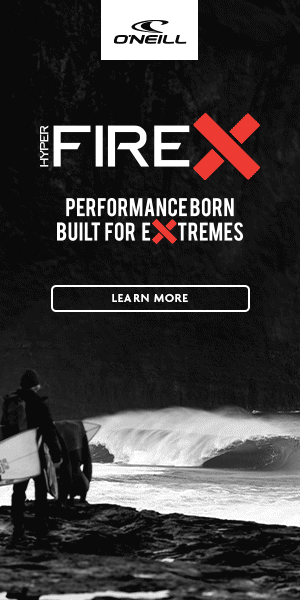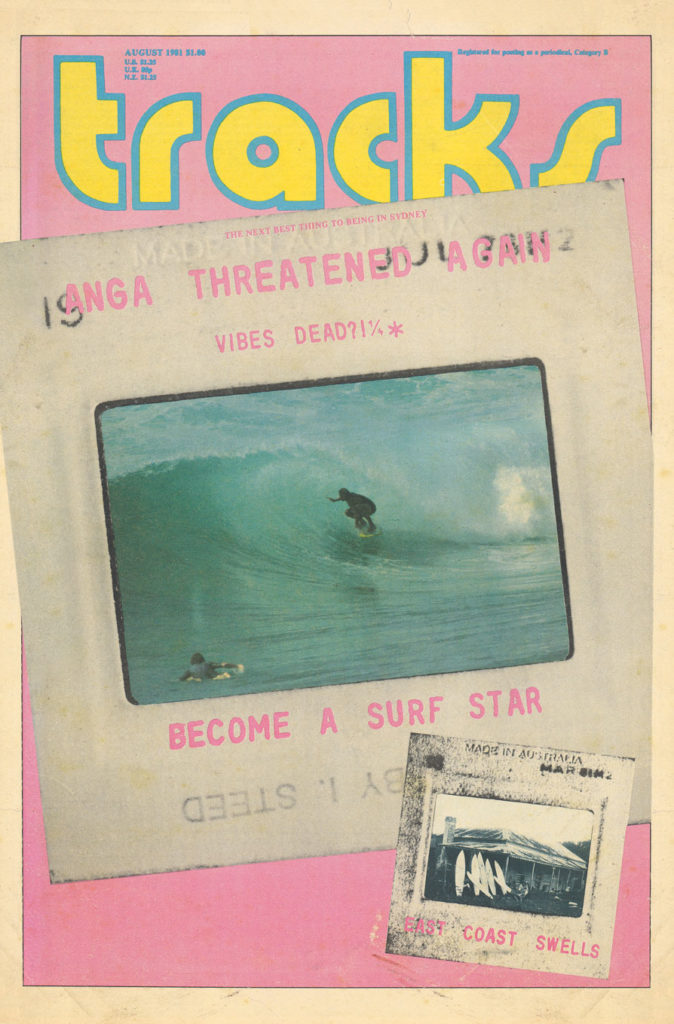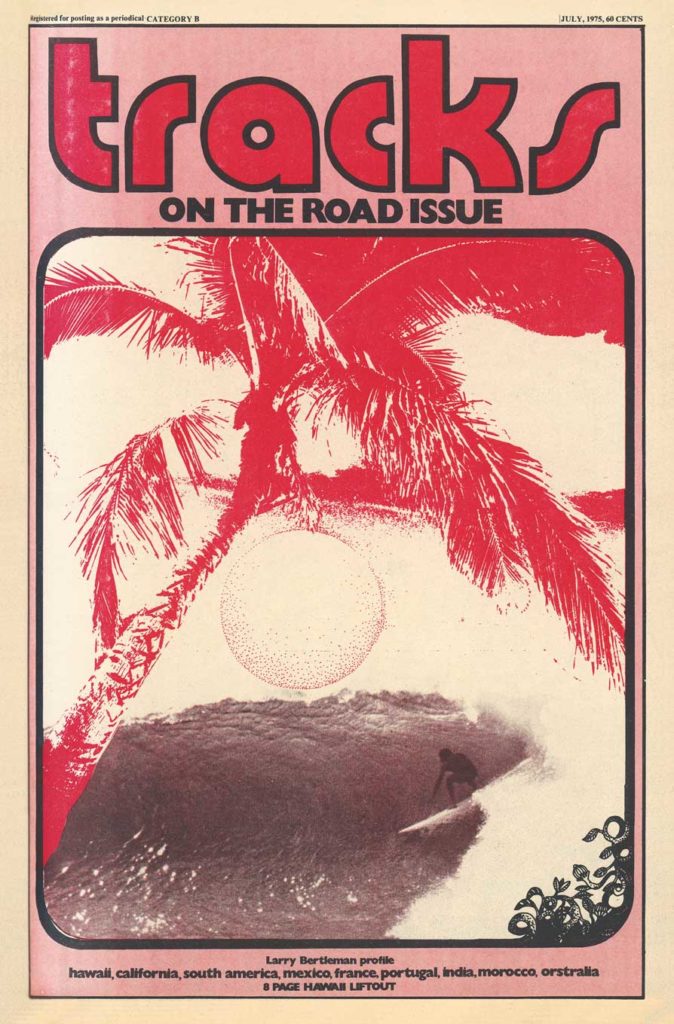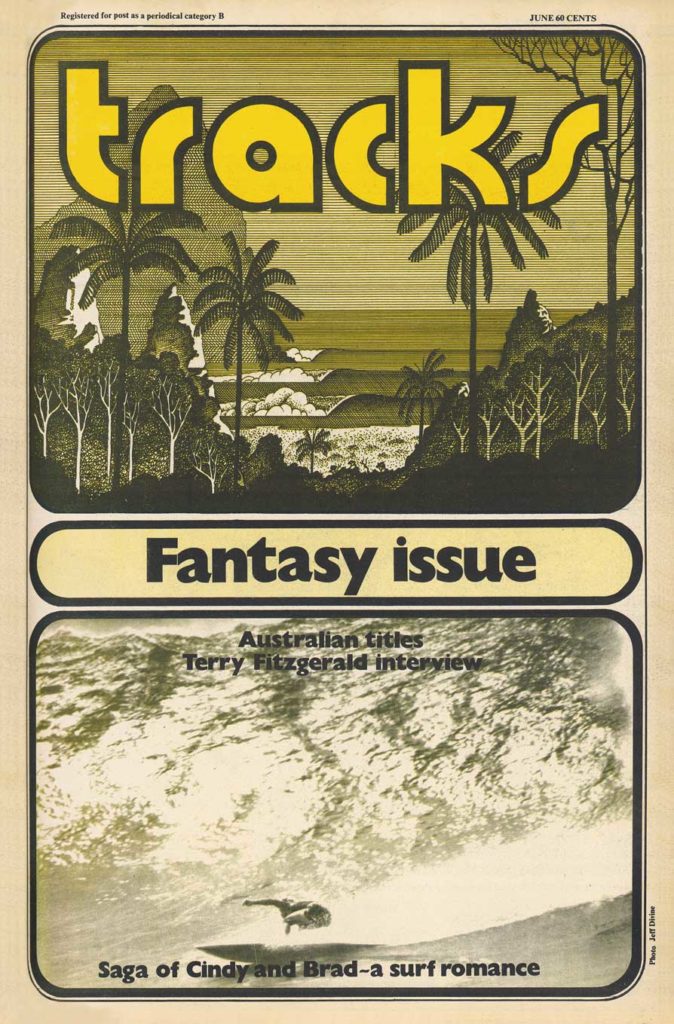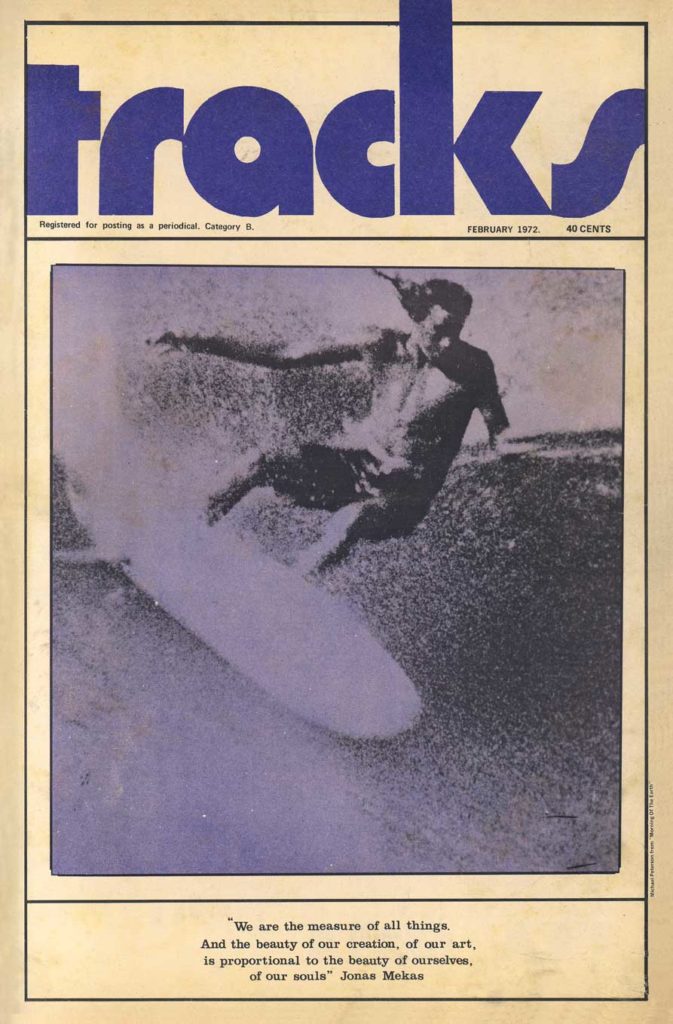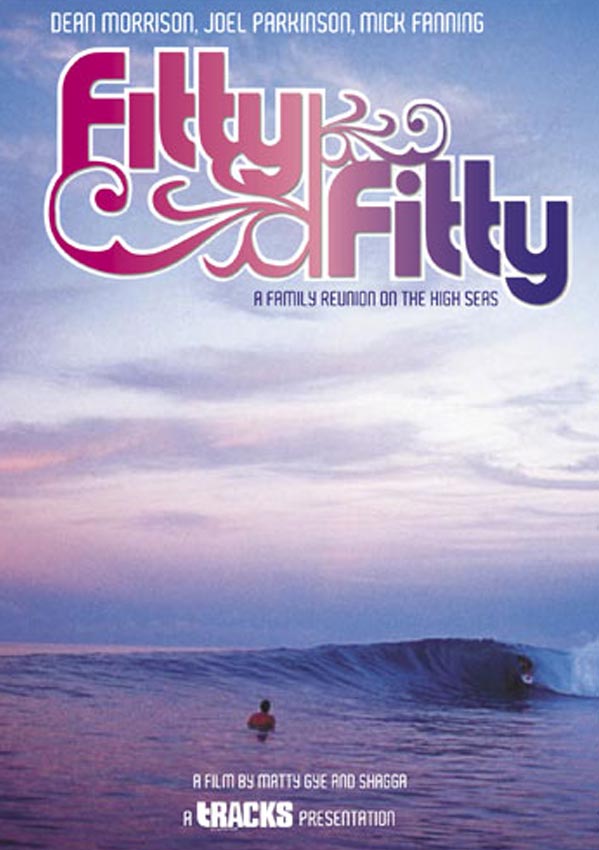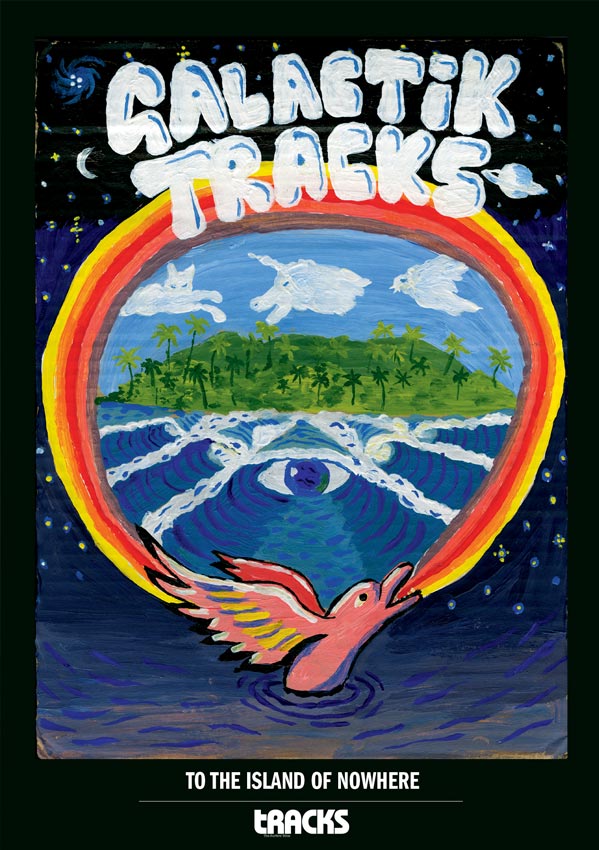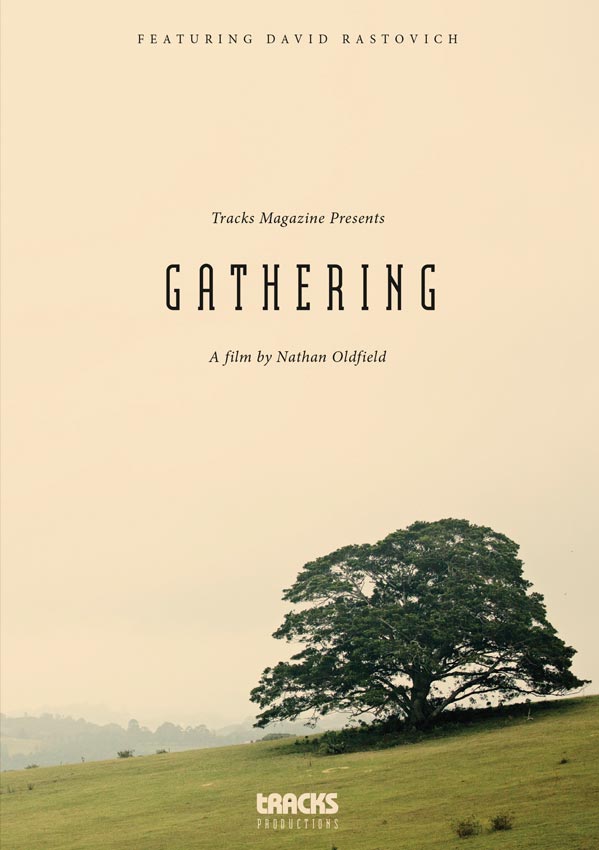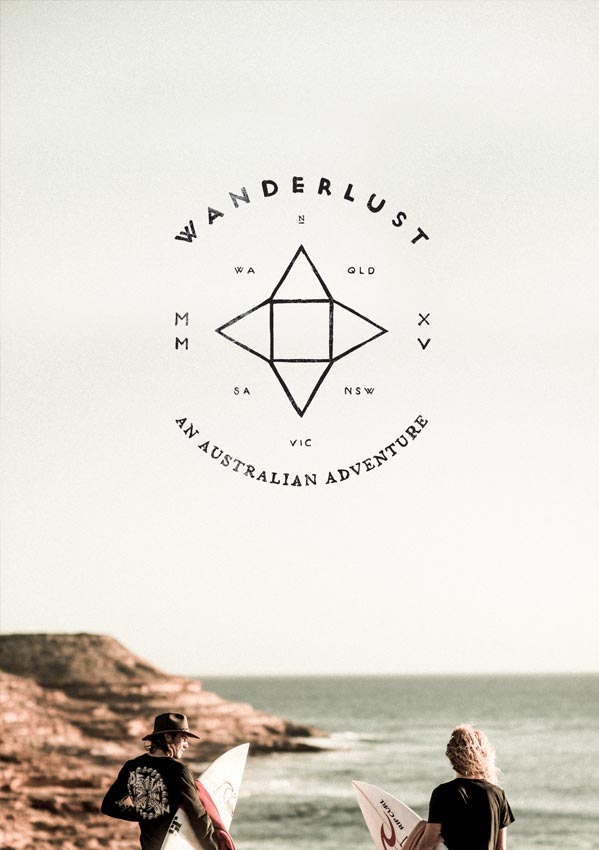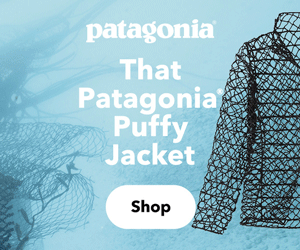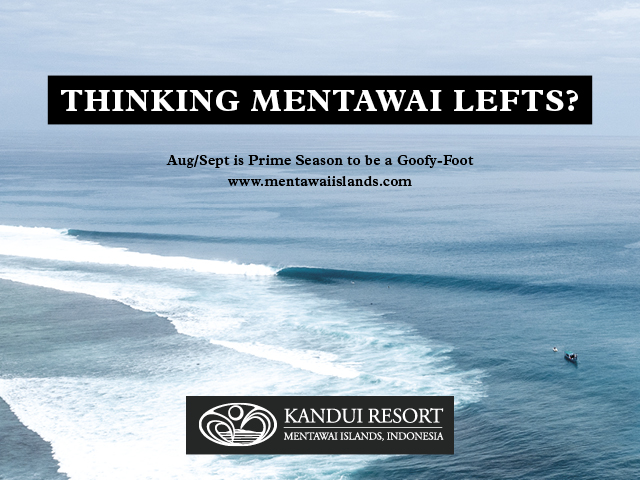When Lucy, one of Australia’s best longboarders, received her winner’s cheque at a Sydney surf contest last year, it was worth less than half that of the men’s winner.
But instead of just accepting it quietly – “which is what I guess over the years women surfers have been expected to do” – she called out the organisers from the podium.
Surfdome spent a few days with Lucy around Sydney discussing the fallout, and the many obstacles still faced by young female surfers.
The longboarder also showcased her skills at one of her new haunts, Bondi beach.
Check out our feature on Lucy from Issue 583 below.
WHEN LUCY SMALL LEFT THE WATER AFTER PERFORMING WELL IN THE FINALS OF LAST YEAR’S CURLY MALJAM, SHE DIDN’T KNOW IF THE JUDGES HAD DEEMED HER THE WINNER.
The MalJam is promoted as Australian long-boarding’s premier Sydney event. According to its Facebook site it ‘attracts the cream of the nation’s riders, past and present World Champions, all going head-to-head with the best of the locals’.
While waiting for the presentation to begin, Lucy took a quick glance at the novelty-sized winners’ cheques and was immediately struck by the discrepancy between the amount awarded to the women’s winner ($1500) and the men’s ($4000). She also double-checked that the entry fees had been the same. Like many surfers, Lucy had closely followed the media surrounding the WSL’s decision in late 2019 to introduce pay equity for women and men in all its events. The Maljam was not a WSL contest, but Lucy had hoped the WSL initiative would inspire contest organisers in all surfing events to introduce prize money parity. Prior to the presentation Lucy raised the prize money discrepancy with her fellow finalists. Together, they floated the idea of taking up the issue after the ceremony. However, when Lucy was announced as the winner she felt compelled to seize the moment.
Fighting off nerves, she accepted the micro- phone on the insistence of the unsuspecting MC, and then eloquently made her point.
“… Thankyou so much to the sponsors for putting the money they’ve put into the event, but I would say that it’s a bittersweet victory knowing that our surfing is worth less than half of the men’s prize money… It cost us the same amount of money to fly here. Accom- modation costs the same, and our surfing’s worth half as much. So, maybe you can think about that for next time.”
Someone filmed the speech and placed it on social media soon after. As Lucy talks, the crowd can be heard reacting in slight shock and then applauding. While emails and quiet diplomacy may have fallen on deaf ears, podiums have a long history as being very effective places to convey a political message. By utilising the natural drama of the setting, there was a sense Lucy had done something quite bold and transformative. Sure enough the Instagram post soon went viral.
Lucy already had a political dimension to her life, working as part of the federal campaign team for the Greens party and while she had always toyed with the idea of entering politics, Lucy suddenly found herself thrust into the spotlight as the spokesperson for a whole range of women’s issues. Mainstream press, surf media, and podcast hosts all came hunting the bold new voice of surfing; film festival organisers wanted Lucy to make event-open- ing speeches and people recognised her in public. It was a big step up, but sensing it was her chance to be an instrument of change, Lucy embraced the opportunity. Capitalising on the momentum generated by the Curl Curl event, Lucy and journalist friend, Kate Allman, put together a campaign which called on the NSW Government to guarantee gender equity in its funding processes across all sports.
However, while Lucy’s recent media attention may have been triggered by a display of spontaneous agitation, she has in many ways spent much of the last decade preparing for this moment. After completing a double-major undergraduate degree in journalism and anthropology, Lucy went on to complete a Master’s in peace and conflict studies. She wrote her Master’s dissertation on women in conflict zones, or more specifically, the changing definition of the social category of women in the context of crisis. In her downtime Lucy wrote articles on women’s surfing, surfed and competed.
Student life also gave Lucy, who is now 28, the opportunity to take the road less travelled through a host of countries. These intrepid yearnings have seen her live in a village in Mozambique, travel to Algeria to meet the nation’s only woman surfer and hang out in Bangladesh with a group of teenage girls who’d taken up surfing and skating. On many of Lucy’s journeys her only travel companion was the 5’9” twin fin under her arm. When you add, Madagascar, Morocco, Vanuatu and overland through Cairo, Israel Palestine to the list of locations visited, it becomes clear that Lucy’s worldview has been shaped by experiences in a diverse range of settings. Of her travels Lucy comments. “It’s made me really passionate about how I frame my own brand of feminism, which is wanting to pull in people who are routinely pushed to the periphery to the centre and take people that are regularly background characters and pull them to the foreground as best I can.”
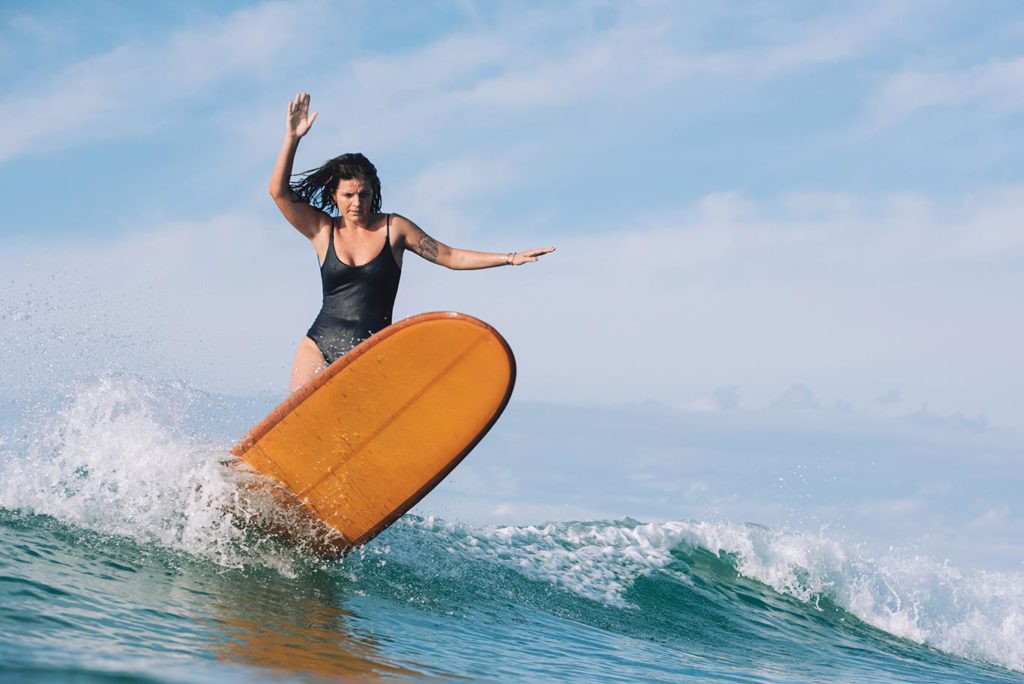
Photo: John Wolfson
Tracks recently caught up with Lucy for an extensive chat about her personal journey and her opinions on the forces at work in women’s surfing.
Where did you grow up surfing? And how did you find your way into surfing?
I grew up in the deep south of WA, in Denmark. It’s a pretty wild coastline and definitely a surf culture far removed from what I’ve become familiar with now on the east coast and around Sydney and Byron and that type of thing… My parents’ house is quite close to the beach, so I started surfing when I was around 14. I just used to ride my bike down and go surfing after school and in the holidays. It was like really amazing growing up there surfing, but we didn’t have any of these influences like the sort of local surf heroes or like hectic tow guys.
Were the guys fairly accommodating? What sort of a scene was it in that respect?
… Because the surf community was so small you know everyone, and it was actually pretty good. I didn’t really feel any kind of like, I guess sexism. But I did find it chal- lenging, like I had never really seen any really good girls surf. And we didn’t really have any movies to watch. And at that time, there weren’t really any girls in magazines. We used to watch ‘Dear andYonder’ all the time. And we used to watch a lot of like YouTube clips of Kassia Meador, but I think I remem- ber the first time I ever surfed really good waves and saw really good women was prob- ably like three years after I started to surf. I went to a contest inYallingup, and to see this really high standard of surfing at The Main
Break – it’s such a good longboard wave… That was a real eye-opener… We stayed in the caravan park, and I remember getting up at first light and going over and looking out and just seeing Main Break and just being like, ‘Whoa those waves are, like, so good.’ I’d never seen anything like it. Around that time, there was a really sort of quite a strong culture of women longboarders in WA, like those women who were doing pretty well on a national and world stage. And they were really welcoming.
Do you have a personal philosophy around competition and why you compete?
I really love competing because it gives me something to focus on. It’s hugely motivat- ing, and I like that discipline. At every event, I just feel like my surfing can improve so much, just from having exposure to all those other surfers, and especially like going to those contests and seeing where the standard is at. It’s a physical test but it’s also such a mental test in so many ways, like in dealing with the conditions and then also telling yourself that you belong and that you are up to that standard. Then in the heat actually dealing with that sort of duress, and it’s so great to experience that… I always find that when I come back from events that I’m just like, so like fired up.
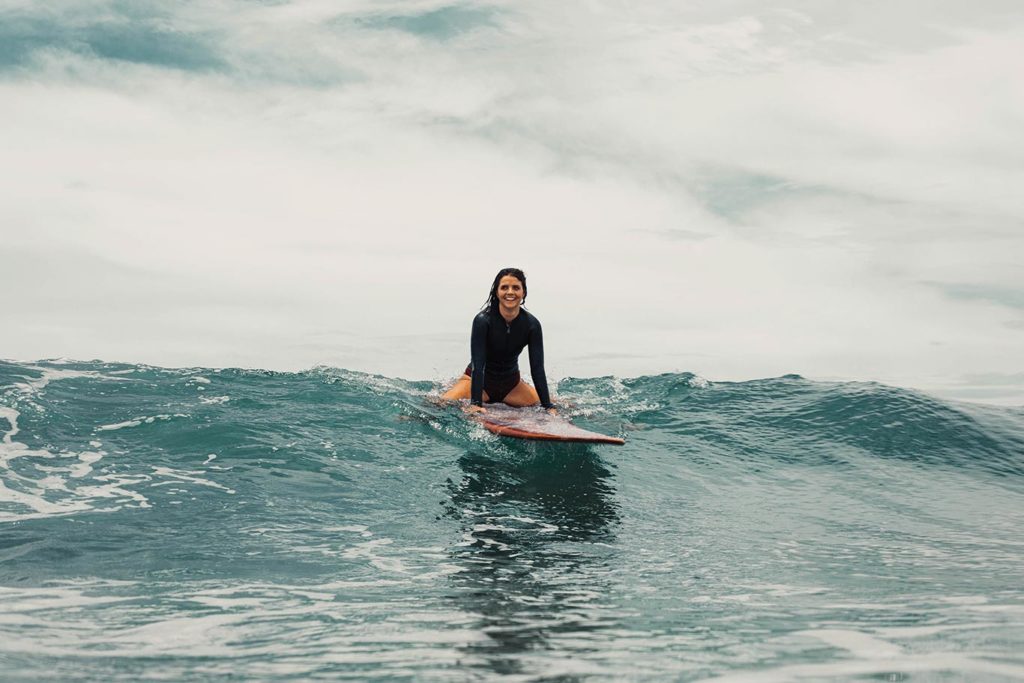
In terms of equal pay at surf events, is it something that you have been campaign- ing for, over some time?
I hadn’t actively been doing anything in regard to it before the Curly event in April. It was something that I’ve always been annoyed about… Obviously when I started competing, the WSL events still had massive discrepancy in prize money too… But like the greater issue of sexism and surfing I have definitely been aware of and tried to play a part in making a change for a long time, like writing stories about women’s surfing, and I feel like there’s there has been like an erasure of the collective history of women’s surfing, through a lack of documentation since the 60s. And since the rise of surf culture as we know it, and when we look at all those kinds of adventure and pioneering stories from the 60s and 70s, up until now, there’s very few about women and what women were doing. Women were there, but it wasn’t written down or photographed – as much. So that’s something that I’ve always really cared about. And I’ve tried to kind of write those stories about today, and the cool stuff women are doing. To ensure we don’t keep erasing those stories and to showcase and document women’s surf history.
Did we get it wrong from the start when Midget Farrelly got more recognition than Phyllis O’Donnell for winning the World Title on the same day at Manly in 1964?
Well, personally, I think yes, because the thing I’ve been saying in the last few months is, ‘I feel like the surf industry just got it the wrong way around’. Because, like, essen- tially, women buy more clothes and apparel, so maybe we should be marketing to them more directly by showcasing women’s surf- ing more?
In that moment where you elected to speak up at the Curl Curl presentation, how nervous were you?
… When they announced that I had won, initially, they didn’t give me the micro- phone… then the person who was emcee- ing was like, ‘Don’t you think we should hear from the winner?’ And he gave me the microphone. And even then I was still like,
‘Don’t say it, don’t say it, don’t say it’. And then I just started saying it. And I was, like, extremely nervous. I was shaking… I mean, I’ve never done anything like that before and it was extremely scary.To hold a $1,500, check in my hand and say, like, ‘this isn’t enough’. And also, just kind of all that pent up… Like, it just felt like such a long time of competing and being treated like a sort of footnote to the main event. And yeah, I guess there was quite a lot of adrenaline in my system while I was speaking… I was really glad that I had a little group of friends near me who were able to say, ‘No, that was really good.’ I was pretty shaky. Pretty rattled.
I think in the Step Sideways podcast you suggested that a ‘disruptive moment can orchestrate social change’.
One of the organisers from the club (Curl Curl Longboarders) was like, ‘Lucy should have just talked to us, she shouldn’t have done it like that’. And I guess that I have had a little bit of pushback from people saying that, like, you shouldn’t have gone about it in that way. But I know that people always say that about protests. So like, I acknowl- edge that everyone has different ideas about how change should be made. But I just know that by doing it on the microphone, and in that moment, that then they can’t make an excuse, you know, like it can’t be just silenced or ignored. And if it’s done publicly, at the very least, the people in the crowd will know that we are not happy with it. Because that was sort of also one of the responses from the club, that no one has complained about this up until now… And I thought, well, that
doesn’t mean that everyone was happy with it, it just means that it’s best to sort of raise it, and not just let it be just that way.
While the outcome was positive, as all the attention flowed in, did you become aware that suddenly you’ve taken some- thing that’s your passion and your escape and you’ve politicised it? How did you feel about that?
Yeah, that’s a really, really interesting point. Because like, in the months following I actu- ally just really didn’t feel like surfing a lot… From doing all this media stuff and talk- ing about this issue all the time. And also having this very clear identity now publicly announced that I’m a surfer and I’m an activist… I did feel quite tired in a way. Yeah, exactly, as you say that this kind of fun, creative, expressive, very natural pursuit that I like to do is suddenly tied in with this very kind of intellectual way of thinking and analysing that I’ve also been doing, and I did have moments over the last six months where I’ve just been like, ‘I just want to go surf- ing and I just want to relax’. And I certainly don’t have that escape as much as I did. But I feel much more now that I do. And I feel like even now, I’m more appreciative of going surfing because this has just all been crazy. And in the end, I can still just like paddle out and catch waves and it’s refreshing.
But on the flip side, you do now have a platform from which you can attempt to orchestrate change.
… I’m so thankful for that. And it’s still so surreal to kind of have people listen to what I have to say about this issue that I do care about so much. It hasn’t really hit home, that I have that opportunity to do it… I guess I really just want to make the most of it to try and make change and to make positive change… I definitely feel like I don’t want to let this opportunity slip away when I’ve got more of a platform than I’ve ever had. And probably, I can’t see sort of having a disrup- tive moment like this again, so I need to take it now that I have it.
Surfing in some way has always been about cultivating your own style. But the industry has been accused of encour- aging women to adopt a very narrow surfing identity through its campaigns. Would you agree with that?
Yeah, I think, generally, like the way that women’s surfing or women surfers are marketed is very different to the way men’s surfers are marketed, which it should be. I think, obviously, it should be, because they’re
selling to a women’s market, and who they’re trying to engage with is different. And then also the surfers and what they have to adver- tise with is different too. But I think that historically, sponsors have valued women surfers for how they look more so than what they can do. Like somebody from the CT I interviewed at the end of last year, she had been to Hawaii – the North Shore – four times before. She was on her fifth trip there and it was the first time that she surfed. She’d been on sponsored trips four times before to do lifestyle shoots, whereas the same brand runs a camp for 16-year-old boys every year to Hawaii, where it’s just hard training and that kind of thing. And that is just a clear discrepancy in what is valued.
I think something that really will have huge impact is when we’re going to see photos of women surfing and they’re not going to be looking lovely, because it’s nice to look lovely. And that’s great. But like how are you supposed to be fit, strong, gutsy, and know how to get barrelled and then also have like a supermodel body? Like it’s very hard…You have to be like a freak. Superstars like Steph Gilmore who’s like over 5’8” and very thin. But even Steph underwent this very, like a big transformation in her 20s, losing a lot of weight and having a whole new appear- ance… I don’t know, I don’t know what her choices were in that regard. But I do feel like it gives women more sponsorship or marketing value if they look a certain way. … Getting out there before the sun rises to surf every day, like training, putting all this effort and money and time into being dedicated to this this pursuit and to compete. And then in the end, what people care about is how good you look when you’re somewhere. Ulti- mately it’s degrading because that’s not what I personally want to be evaluated for. I want to be valued for what I can do and what my dedication to that is and not how I look as a result. And I hope that is something that we can really change. And I think it is, but it’s still slow.
Do you think the industry could be accused of lacking creativity and authenticity in its approach to market- ing women and men? There’s lots of different ways to market and promote people do you think there’s a lack of imagination in that process?
Yeah, totally. I think that it’s sort of like, a lot of marketing seems to be quite one- dimensional and doesn’t show that case diversity. It’s sort of like you can just see that men’s marketing for surfing is like adrenaline and women’s marketing is like having fun. So you get those two. And like, that’s the sort of aspirational background of basically most surf related ad campaigns that I’ve seen. I mean, some people will just want to be passionate and do stuff. They don’t want to look like they’ve got some lovely smile and look cool, or sweet and golden, when really they’re fired up, and they want to win and they want to get barrelled and they want to do airs, or what- ever it is… Like if the model of being a pro-surfer is to be sponsored as an advertising tool, then the brands need to reflect that and show that. Show the different complexities of people and have different characters across the industry. And I think it’s also reflected in race as well, like I don’t know how many billboards you’ve seen with people of colour as surfers, but it would be not many. In fact, there has actually been very few black, Afri- can, or Asian women that have had access to the top tiers of surfing. And that’s something that really, really needs to be changed or to be worked on.
Your profile has grown, and I notice you do some stuff on Instagram. So do you personally think, ‘I’ve got to market myself in some perspective’, is that a conscious process for you?
Um, I do think in terms of how Iwant to present myself, and I do definitely consider those pressures. But then I also think, like, part of the feminist movement means liberated women don’t have to conform to these narrow parameters of social expectation. And that, like, if I want to wear a skimpy bikini, then I will, if I like it, you know, because, like, the message I should be sending, I think, is that I can, like, be liberated in my mind and my thoughts and have a progressive voice and that kind of thing. But the idea is to value the feminine… A huge part of the gender hier- archy is that traditionally feminine traits are devalued. It imagines that status elevation of the women is actually to move them closer to the similarities of men, but that actually isn’t correct.You should be able to do that if you’d like, but you should also be able to have traditionally feminine traits valued and held at equal value. So, I guess that’s a really complicated way of saying that I definitely want to make sure that what I’m sharing is consistent with what I stand for. However, I also think I don’t want to sensor myself too much, because that again is just conforming to the patriarchal beauty standards and expectations and stereotypes anyway. Social media is like a really exaggerated extension of how you personally want to express your- self day by day, like from what I choose to wear, or how I want to have my hair cut, like, I make those choices based on how I believe that it showcases my identity. Doing that on social media is like an extension of that, it’s an even more deliberate, curated version of how I would like myself to be perceived or how I want to present myself to reflect who I am.
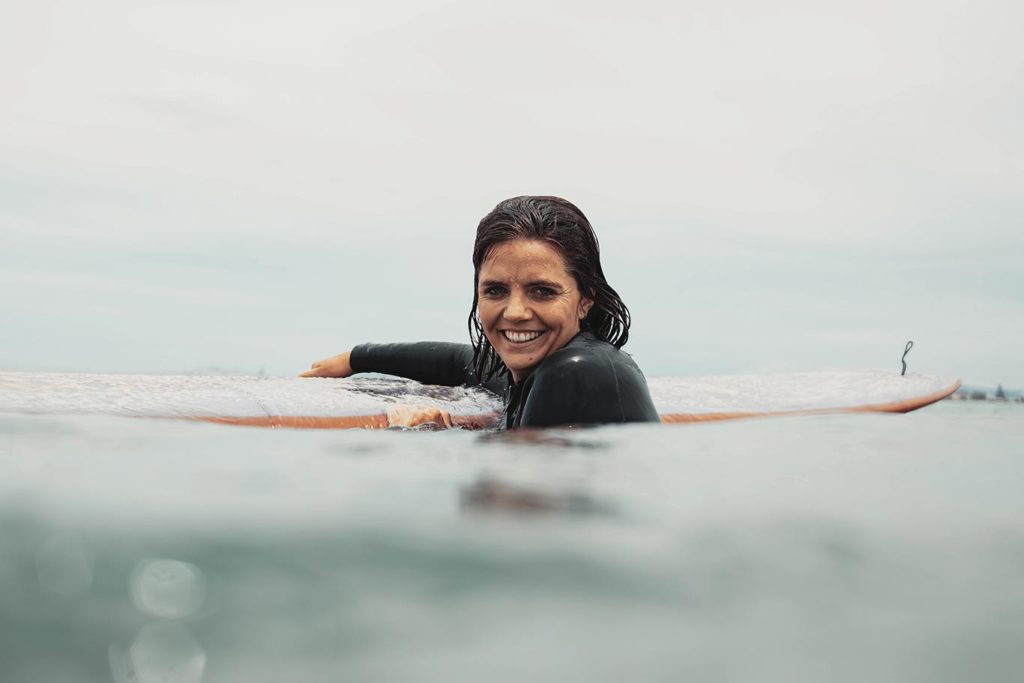
What was your view on the appointment of Brooke Farris as the CEO of Rip Curl? There was a major article in the SMH’s Good Weekend about it?
Yeah, I think it’s really, really awesome that she’s in that role. I think it’s sad that it’s taken 60 years. But I mean, Brooke is a great leader and a great role model. And I think that she’s going to take it in a really positive direction. However, I do think that in the articles, like that one in the Sydney Morning Herald, the people interviewed were all men. So often the voices of authority – like automatically – the voices that are considered authoritative are men.
Is it simply about having more women in the lineup? Is that going to change surf culture? If that’s unrealistic, then how do you change the dynamic?
I’ll be honest in saying that I don’t have the answers to everything. I think that having more women in the lineup would be great. Like my sample for that would be the Pass at Byron, where there is often more women than men in the lineup. And it’s obviously a hectic lineup, but I do feel like often it is a lot more chill…
I do think that this kind of possessive territorialism that goes on with lineups is, especially in this country, a bit misguided. And I think it really contributes to women being treated like the outsiders in lineups. But I honestly can’t definitively say that these few, single things that we can do will make everything better. I’m trying to find places that I can see where there can be solutions, but it’s also like, all I can really do is try and show the positives and talk about the positive ways that being more inclusive can benefit surfing and benefit everybody, and hope that people will want to join and catch-on and be part of that.
I personally feel like it’s more fun to surf with more girls in the water. It takes the edge off the male ego and the testosterone levels.
And that’s like the whole point really, it’s like this real sort of hyper-masculine, patriarchal culture that is present in some parts of surfing. Breaking that down is beneficial to everybody. You know, you don’t want to have to go out there and prove your masculinity. You should be able to just go out and not have to do that, you know, and have fun and just get some waves if you want to. And not have to enter into this kind of jostle – into this struggle – and have that somehow linked with your identity, with your gender identity. I think breaking that down and reorganising, it will be beneficial to everybody.
You work in politics now, in a more behind the scenes role. Would you ever consider becoming a fully-fledged politician?
I feel like I’ve always considered it… And I think I have been considering it more so recently. But it’s a huge commitment to become a politician, just to put all the effort into campaigning to run. And then if you get elected, like, the amount of hours and like, if I was going to be a politician, I’d want to be a good one. And to do that, it’s like dawn to dusk, work and meetings, and that kind of thing. Day in and day out. There’s no surf trips scheduled into that. And I feel like, maybe I would like to do that eventually. But at the moment, I still value having some freedom and flexibility. And I feel like I don’t know if I have the capacity to do that yet… Six months of my views sort of aired in the public sphere has been confronting and tiring and challenging. And when you’re a politician, you just get absolutely annihilated by people on the Internet all day, every day. I just feel like you have to be completely stead- fast in your beliefs… to be able to hold on and not let it sway you and I just don’t know if I’m ready for that just yet.
Want more premium content like this? Subscribe to read every feature from our print issues.

